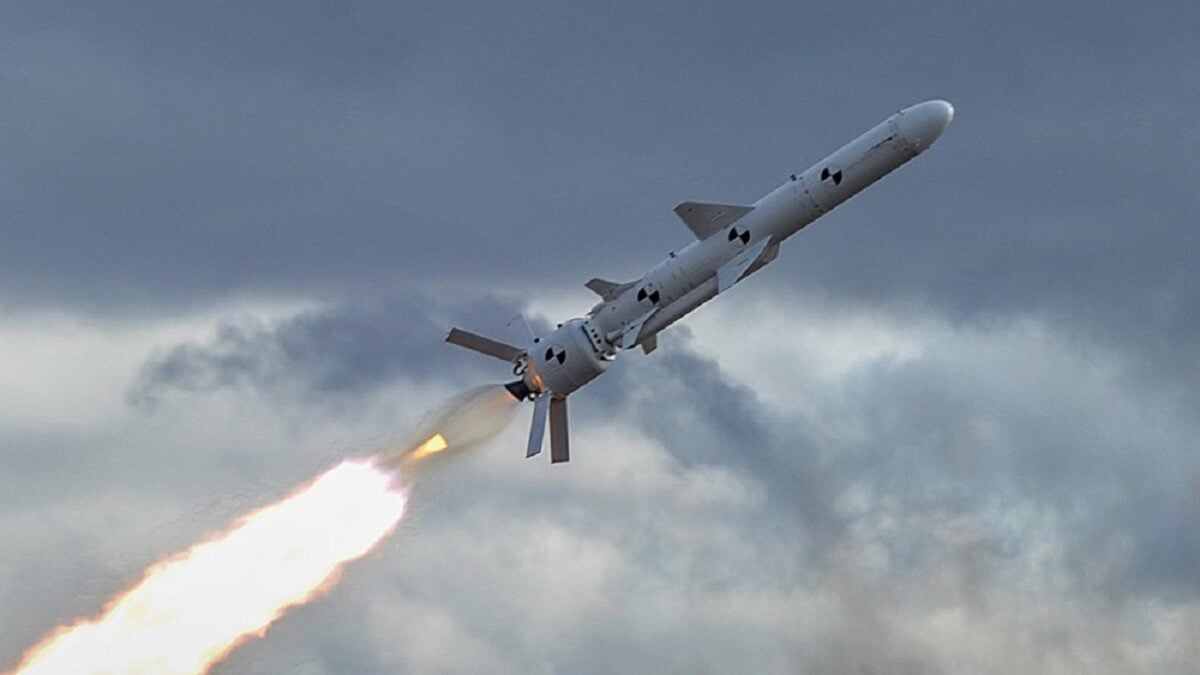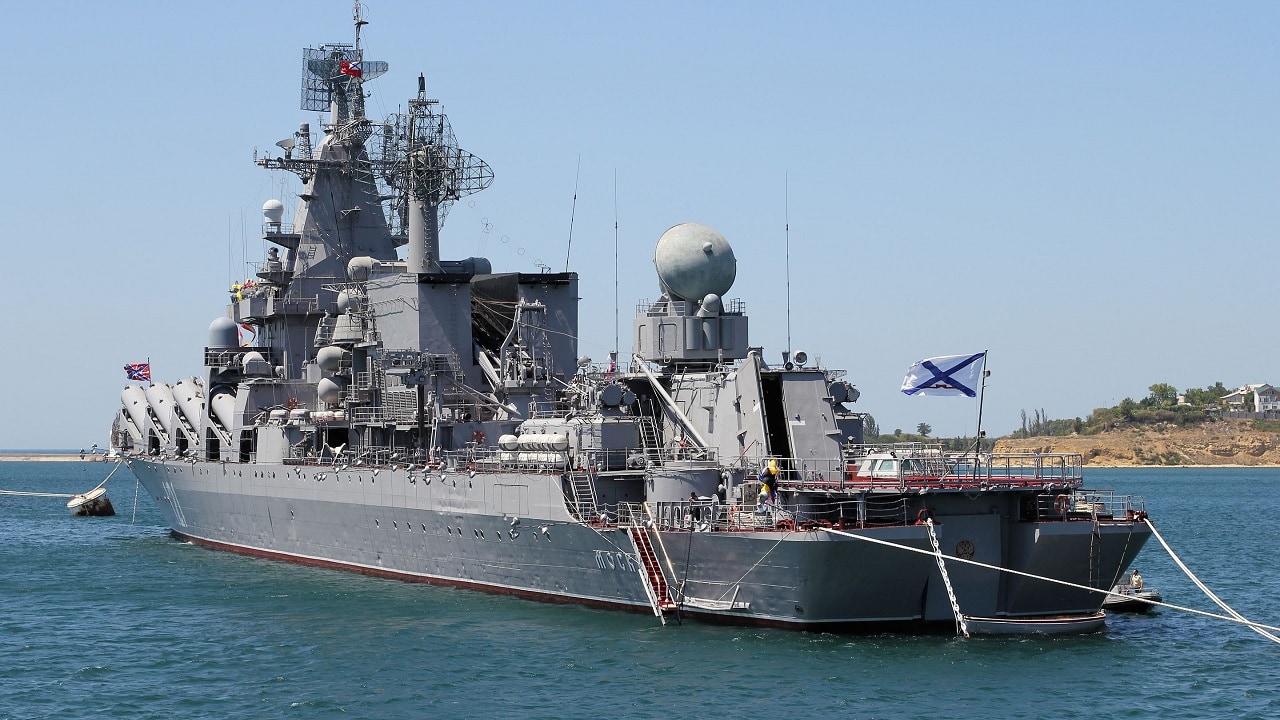Hear Audio of Russian Military Reacts As Moskva Flagship Sinks – An audio recording just released by the Ukrainian military reveals the panic in Russian troops’ voices as the Moskva flagship was struck by Ukrainian missiles in April.
In the audio clip, crew members can be heard shouting as the vessel begins to lean to one side and eventually sank.
“Moskva 1, two holes! Propeller stalled! Sinking! Lying on its side!” one crewmember can be heard shouting in the clip. It should be noted that 1945 cannot confirm the authenticity of the clip.
The audio, shared by Ukraine’s Operational Command “South” on Facebook, was accompanied by a caption describing it as the “final record of the negotiations” of the Moskva crew.
The same crewmember can also be heard describing a hole under the waterline that caused the flagship cruiser to lean.
“There’s a breach below the waterline, the ship is listing by 30 degrees. We can’t sail to meet up with tugboats, urgent crew evacuation is underway,” the crewmember says.
“There is no way to get closer to the tugboats,” the crewmember can be heard saying. “We’re doing our best to save the crew.”
Why the Moskva Matters
Ukrainian forces sinking the Moskva was a tactical and symbolic victory against Russia in April. The Moskva cruiser was the most powerful warship in the Black Sea and was previously deployed during the 2014 annexation of Crimea, before being sent to Syria in 2015. In February of this year, the Russian military deployed the ship to Ukraine but ultimately succumbed to two Ukrainian Neptune missiles on April 14.
Not only was the ship Russia’s most powerful cruiser, but it has also undergone extensive maintenance, repairs, and improvements in recent years with a view to keeping it in service until 2040. The ship first sailed in 1983.
For Russia, the sinking of the Moskva was an embarrassing defeat, compounded by the fact that its military is presently on the verge of being pushed back over the Russian border in some parts of eastern Ukraine. A “special military operation” that Russia thought would last a matter of weeks has dragged on for almost three months, and the chances of a Russian victory get slimmer by the day.
U.S. Denies Involvement
Earlier this month, Pentagon press secretary John Kirby denied any U.S. involvement in the sinking of the ship, insisting that the U.S. military “did not provide Ukraine with specific targeting information for the Moskva.”
“We were not involved in the Ukrainians’ decision to strike the ship or in the operation they carried out…We had no prior knowledge of Ukraine’s intent to target the ship,” he said.

Neptune Anti-Ship Missile. Image Credit: Creative Commons.
U.S. involvement in the sinking of the Moskva would be considered escalatory by Russia. So far, the United States and NATO countries have only provided military equipment, supplies, and financial aid to Ukraine – stopping short of putting boots on the ground or directly assisting with military operations and strikes against Russia.
Jack Buckby is a British author, counter-extremism researcher, and journalist based in New York. Reporting on the U.K., Europe, and the U.S., he works to analyze and understand left-wing and right-wing radicalization, and reports on Western governments’ approaches to the pressing issues of today. His books and research papers explore these themes and propose pragmatic solutions to our increasingly polarized society.

